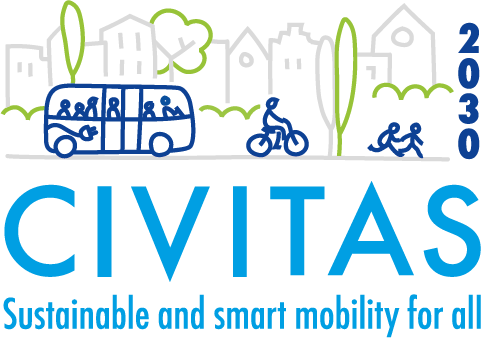
Turku, Finland
General description
Turku, with its surrounding municipalities, is an energetic centre of growth in the Baltic Sea area. The versatile livelihood structure, top class selection of education, culture and services, as well as the beautiful archipelago, form a magnetic combination. Turku is the oldest city in Finland, founded in 1229, is Finland's oldest city. Its compact size makes it ideal for exploring the vibrant blend of history and modernity.
In 2022, the City of Turku was selected as one of the European Union's 100 Climate-Neutral and Smart Cities. In 2024, the City of Turku was further recognised by being chosen for the Mission.
Offering affordable living, diverse housing options, a thriving student community, a rich cultural scene and plenty of outdoor activities, Turku provides an excellent quality of life for its residents. Additionally, it is an attractive destination for skilled professionals seeking new opportunities
mobility goals
The Sustainable Urban Mobility Plan (SUMP) and Sustainable Urban Logistics Plan (SULP) were accepted in December 2024, while the Regional SUMP has been in place for several years. The vision of the Sustainable Urban Mobility Plan for the year 2030 is: The transport system and service network of Turku will attract everyone to move safely, healthily, and sustainably.
Turku aims to reduce greenhouse gas emissions from road and street traffic in Turku by at least 50% from the 2015 level by 2029. And to increase the modal share target for walking, cycling, and public transport to 66% in 2030. During the 2030s, the city will strive for a fully carbon neutral transport system that enhances the well-being and health of its residents and enables safe mobility for all groups of people. Promoting sustainable mobility will also contribute to the vitality and attractiveness of the city.
Population
202 466
Area (km2)
- 245
modal split
- Private vehicle - 51%
- Public transport - 8%
- Walking - 29%
- Cycling 10%
challenges:
- Changes in the mobility pattern have not taken place.
There has not been enough sustainable measures implemented that would have had an impact on the modal share. More efforts are needed to enable the mobility patterns of the inhabitants to change.
- Turku aims to be climate neutral by 2029 and this means also the mobility needs to be carbon neutral.
Carbon neutrality in mobility requires many measures together with different stakeholders. The city alone cannot achieve this and more focus needs to be put on enabling a larger movement towards carbon neutrality.
- Turku region is growing and this increases car traffic, therefore congestion is expected to increase.
A new way of thinking mobility as a service is needed to make it possible for inhabitants to live without their own private cars. Measures to support this need to be integrated into the planning practices of the new housing and working areas.
City News

This project has received funding from the European Union’s Horizon Europe programme under grant agreement No. 101103924. Views and opinions expressed are however those of the author(s) only and do not necessarily reflect those of the European Union or the European Commission. Neither the European Union nor the granting authority can be held responsible for them.


REALLOCATE is a project under the CIVITAS Initiative, an EU-funded programme working to make sustainable and smart mobility a reality for all, and contributes to the goals of the EU Mission Climate-Neutral and Smart Cities.


